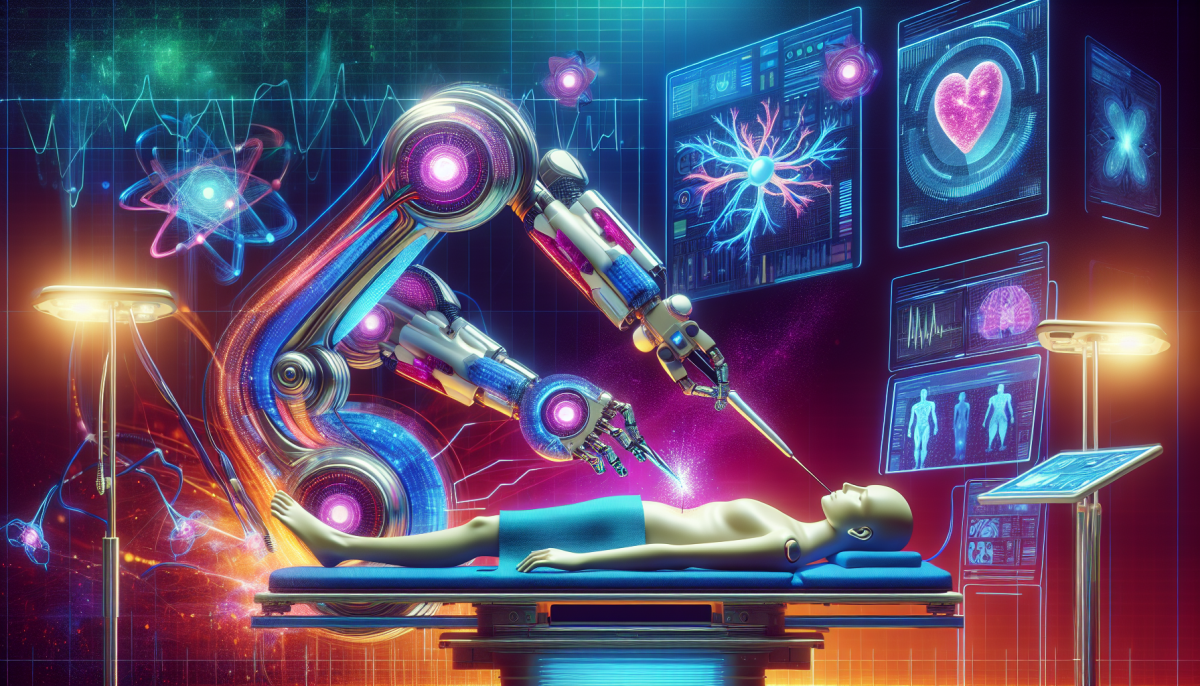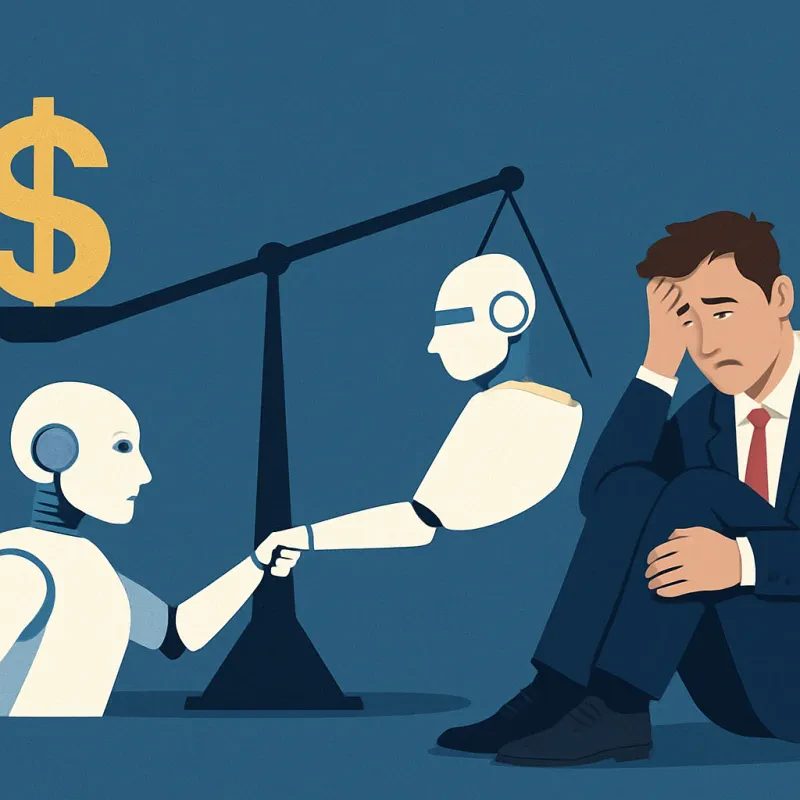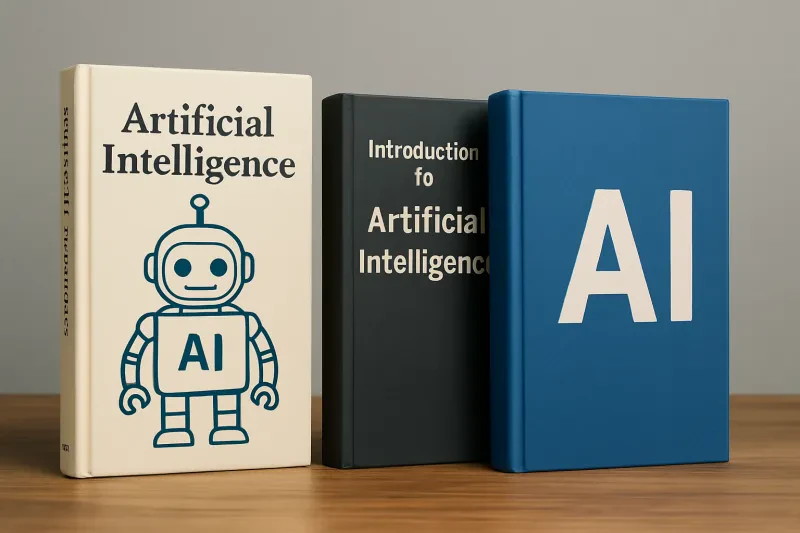AI is shaking things up in healthcare like never before. It’s all about making things smoother and smarter for patients and providers. Imagine getting instant insights from your medical data or having a virtual assistant that helps you navigate your treatment options—all thanks to AI!
One major way AI is helping is through better diagnostics. Algorithms can analyze medical images faster and often more accurately than humans. Think of it as having a superpower that spots potential issues early, helping doctors catch problems before they get serious. This means quicker treatment for patients, which is always a good thing.
And let’s not forget about personalized medicine. AI analyzes individual health data to tailor treatments specifically for you. No more one-size-fits-all solutions. This means more effective treatments and fewer side effects. Imagine being treated based on your unique profile instead of just generic guidelines—it’s a game changer!
AI is also streamlining administrative tasks. Hospitals can use AI to manage schedules, handle billing, and even process insurance claims. This allows healthcare workers to focus more on what really matters: patient care. Who doesn’t love the idea of less paperwork and more time spent with patients?
In short, AI is not just a buzzword in healthcare. It's making real changes that improve lives. From catching diseases early to personalizing treatment and easing administrative burdens, AI is truly revolutionizing healthcare, one patient at a time.
How AI Improves Patient Care Faster
AI is changing the game in healthcare, making patient care faster and smarter. With advanced algorithms, AI can analyze tons of medical data quickly. This means doctors get instant insights, allowing them to diagnose conditions sooner and tailor treatments to fit individual needs.
Imagine a world where an AI system scans your medical history and current symptoms, then suggests the best possible treatments—just like having a personal health assistant! These systems recognize patterns in data that a human might miss. This helps doctors focus on what really matters: caring for patients.
AI doesn’t just stop at diagnostics. It’s also making treatment plans smarter. With predictive analytics, doctors can foresee complications before they even show up, leading to proactive care. Patients feel more secure knowing their healthcare team is equipped with cutting-edge tools to catch potential issues early.
Plus, AI helps streamline everyday processes like scheduling and follow-ups. No more long waits for appointments or getting lost in the paperwork shuffle. Administrative tasks get handled quicker, so healthcare professionals can spend their time where it counts—caring for you.
Transforming Diagnostics with AI Technology
AI technology is shaking up the world of diagnostics in healthcare, making it faster and more accurate. Imagine walking into a clinic and having advanced algorithms quickly analyze your symptoms and medical history. This kind of smart tech gives doctors a major boost, helping them pinpoint issues without wasting time.
Take imaging, for example. AI can analyze X-rays, MRIs, and CT scans in the blink of an eye, spotting things that a human eye might miss. This means catching diseases earlier and starting treatment sooner. Instead of waiting days for results, patients can get answers almost instantly. That's a game changer!
But it doesn't stop there. AI tools are also improving how we collect and manage patient data. With machine learning, these systems can keep track of trends in patient history and even predict future health risks. This helps doctors create personalized treatment plans that take your unique health journey into account.
It's exciting to think about how AI is enhancing the accuracy of diagnoses and making healthcare more efficient. The tech doesn't just support doctors; it empowers patients, giving them peace of mind in knowing their health is in capable hands. The future looks bright with AI leading the charge in diagnostics!
AI Benefits for Patients and Providers
AI is changing the game for both patients and healthcare providers in some pretty amazing ways. For patients, it’s all about personalized care. Imagine a doctor who knows not just your medical history, but also your lifestyle, preferences, and even genetic background. AI helps in analyzing all this data to create a treatment plan that fits you just right. This means quicker recovery times and better health outcomes!
On the provider side, AI tools make it easier to manage patient information and streamline workflows. With AI, doctors can quickly pull up patient records, track symptoms, and get recommendations for treatments. This speeds up decision-making and helps healthcare teams focus on what really matters: delivering top-notch care to patients.
AI also helps catch health issues before they become major problems. Predictive analytics can look at patterns in data to identify potential risks, allowing for early interventions. This proactive approach means patients get the care they need right when they need it, which can save lives and cut down on costs.
Another big perk is how AI enhances communication. Patients can get their questions answered quickly through chatbots or AI-driven platforms, making it easier to access information about their health. For providers, AI can streamline administrative burdens, freeing up more time to spend with patients. Everyone wins!



